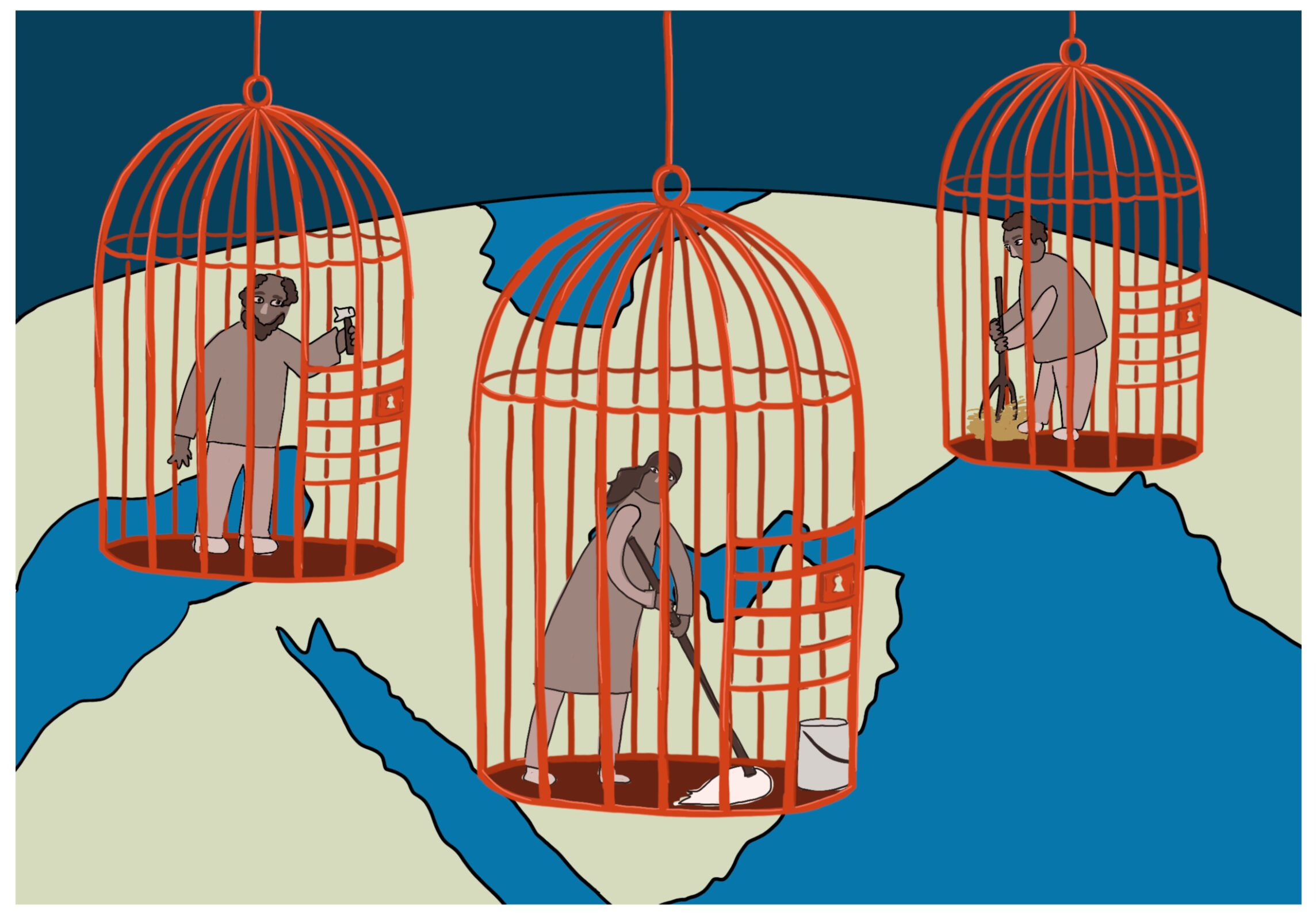The Kafala system “is a model for the regulation of migrant workers used throughout the Gulf Cooperation Council” and is regularly used in Islamic states, like Qatar. The system has enabled a greater numbers of migrants to enter the national workforce, shifting the local demographics; native populations are now outnumbered by immigrant workers, predominantly from African nations and South-East Asian states. For example, the UAEs’ over 9 million population is 90 percent immigrants. Prior to entering a country, the worker must be tied to a ‘kafeel’, a local sponsor who is usually their employer. The sponsor is in charge of covering travel expenses, and providing housing; however, with this comes the ability to exploit and deny them “such rights as the ability to enter a labor dispute process or join a union.” In this system, the sponsor is the only person who is able to renew and/or terminate residency and work visas, endowing private citizens – not the state – the ability to control legal statuses, and hence forging large power imbalances. Workers are left with practically no other options than to remain with their current sponsor despite facing abuse, as leaving the workplace without justification can lead to the sponsor declaring termination of the visa and “imprisonment or deportation.” Nonetheless, this system has managed to keep the UAE together as the state “offers them a wide range of social benefits, such as generous housing benefits, access to free education and preferential treatment in the workforce.” Given these benefits reaped by Emirati citizens, any effort by the UAE government in favour of reform, in line with international standards and labor conventions, will likely be unpopular as it would threaten their limited privileges.
Despite knowing this, vulnerable immigrant workers risk joining this system as it offers higher wages than what they would receive domestically. After facing high recruitment fees to private agencies, workers are forced into signing contracts which they usually do not understand, often leading to the inclusion of additional conditions that were not previously agreed upon. Additionally, directly after arrival in the UAE, passports may be confiscated and migrant workers are forced to reside in a small room with over ten other workers. Moreover, wages are tremendously low and infrequent, leaving workers to fall into a situation of “debt bondage and find themselves compelled to accept the terms and conditions imposed on them.” This is why this kafala system is often viewed and discussed as the ‘modern slavery’ system. The UAE government also frequently deals with labor law violations but fails to investigate them as “possible trafficking crimes.” This lack of regulation “allows employers to further confiscate employees’ passports and restrict financial independence.”
Some progress, despite being minor and slow, has been made in nations, like the UAE. For example, a ‘flexi-visa’ was created for workers that are undocumented. However, a turning point occurred when the international community witnessed the reality of thousands of immigrant workers during the Qatar World Cup; Qatar was obliged to change its system, implementing a minimum wage, creating an online platform to ease job changes and increasing penalties to employers who withhold wages; policies aimed to fit more in line with the International Labor Organization’s terms. This creates some hope for the future, however, large enforcement gaps have appeared and support for reform has diminished in countries like Lebanon, saying it would be too economically disruptive because their economy heavily relies upon remittances.
Furthermore, the silence of Western establishments in response to the mistreatment of migrant workers in the UAE indicates their unlikeliness to take meaningful action unless the issue directly affects their own interests; “it seems to be the case that when employees are mistreated in a different country, far away from the safety of the protective laws and regulations of countries like the United States, the United Kingdom, or France, these Western establishments tend to remain disappointingly quiet.” However, with the UAE launching massive infrastructure projects, the international community will be closely observing the working conditions of those involved in building these projects. It is hoped that the media coverage of the workers’ hardships will raise awareness, pressuring Western nations to address the systemic problems within the kafala system, which allows for the exploitation and abuse of many migrant workers.
Edited by Liz Bredt

